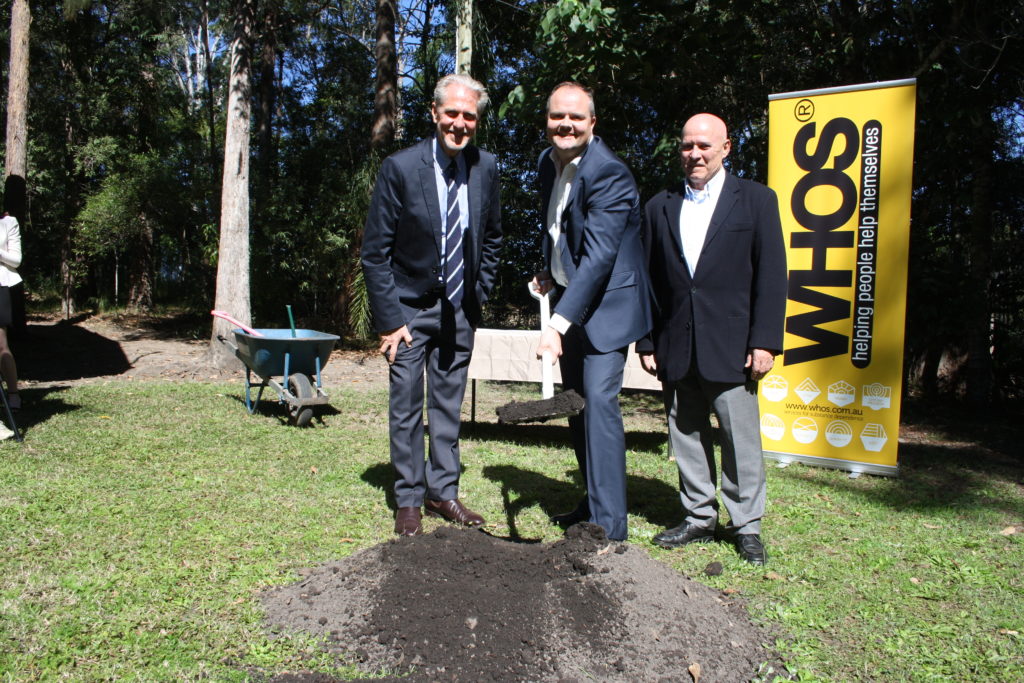MORE Sunshine Coast women suffering alcohol and drug addiction will have access to a rehab bed thanks to Federal funding to build a new transitional home.
Member for Fairfax Ted O’Brien said $256,060 awarded under the Building Better Regions Fund (BBRF) would help pay for a women’s only six-bedroom rehabilitation building in the Nambour area.
The project will enable We Help Ourselves (WHOS), a not-for-profit NGO and one of the largest drug and alcohol organisations in Australia, to support female clients in their recovery from drug and alcohol dependence and regaining their lives.
The project is one of 136 in Australia funded under the $200million BBRF Infrastructure Projects stream.
Mr O’Brien today joined WHOS executive director Garth Popple and manager of the Nambour residential therapeutic community, Trevor Hallewell, for a soil-turning ceremony at WHOS’ Najara Nambour Service.
The new six-bedroom home with designated dining and living areas for group work and relaxation activities will be built on WHOS’ existing Najara property which currently has capacity for 20 clients at a time.
Mr O’Brien said the new transitional home would enable up to 40 additional people each year to access the live-in service, a 20 per cent increase on current admissions.
“There is huge need in the community for residential-style rehab centres like this which is evidenced in the fact that only 15.7 per cent of people inquiring are currently able to access a bed,” said Mr O’Brien.
“This facility will hopefully make a difference to the lives of more women and their families as they struggle with addictions and the associated problems of crime, homelessness and unemployment.
“Clients will share cleaning, cooking, gardening as they would in their own home and will establish new routines in their lives.
“It’s about helping them develop a sense of responsibility and learning to contribute back to their transitional house community.”
WHOS executive director Garth Popple said without the chance at rehabilitation, people could end up in prison, homeless or dead.
“We have huge demands for beds and timing is so important. It’s vital that someone is able to get a bed when they need it,”’ said Mr Popple.
“The average stay at one of our facilities is about 90 days and our therapeutic community care model is highly effective, reducing illicit drug and alcohol use to zero.
“The severity of dependence is also reduced 47 per cent and people experience improved psychological health and quality of life.”
Established in 1972, Mr Popple said WHOS operated more than 260 beds nationally, supporting more than 800 alcohol and drug affected individuals each year.
